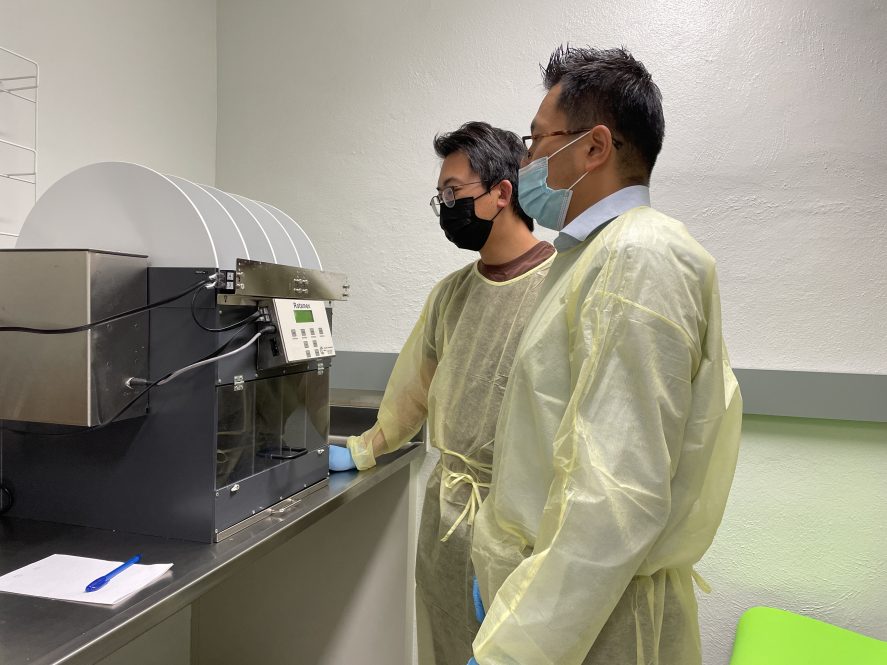Aging is a natural process that occurs as we get older – a process often associated with painful physical changes. But Ming Xu, an assistant professor in the UConn Center on Aging and the Department of Genetics and Genome Sciences, is investigating how to slow down aging, in order to not only extend the lifespan, but keep people healthier as they get older.
In a new $3 million R01 grant from the National Institute on Aging, Xu will investigate the role of p21-highly-expressing (p21-high) cells in aging.
p21-high cells are a subset of senescent cells. Senescent cells are damaged cells that don’t die like they’re supposed to. As we age, these cells become more common throughout the body and cause common age-associated effects like skin sagging or joint pain.
“Usually if a cell has a lot of damage, it will go apoptosis (programmed cell death),” Xu says about p21-high cells. “But for some reason, these cells do not go apoptosis. They become senescent.”
These senescent cells create a lot of inflammatory signals. Normally this would mean the immune system rushes to address the problem and clear the cells away. But as we age, our immune system gets weaker, and it can’t keep up with senescent cells’ demands. This causes negative aging processes.
Senescent cells only make up about one to 10% of cells in aged tissues. But the senescence can also spread to other healthy cells nearby.
“Even though these cells are a very small population…because they can spread their senescence and they can induce inflammation and cause tissue dysfunction in nearby tissues, and alter the whole microenvironment, that’s why a small number of them can cause substantial tissue damage,” Xu says.
In a preliminary study, Xu’s team reprogrammed p21-high cells to express the apoptosis “suicide” gene in order to observe the effect of removing these cells from a novel transgenic mouse model.
To measure the effectiveness of this approach, Xu’s team not only recorded how long the mice lived, they also included measures of physical function like maximum walking speed and grip strength every month until death. These served as measurements of life quality in the months before their death.

Xu team gave 20-month-old mice (the equivalent of a 60-65 year-old human) two doses of the drug that caused p21-high cell apoptosis every month. On average, the mice who received this treatment lived 80 days longer than the control group, the equivalent of 10 human years.
Further, these mice not only lived longer, but they had better physical function than the mice in the control group.
Xu previously published findings showing a link between p21 cells and diabetes.
This new proposal will allow Xu to investigate the role of p21-high cells more closely. Xu’s team will obtain transcriptomic signatures of p21-high cells on the single cell resolution. They will then systematically turn off unique pathways in the cells to determine which pathway, or pathways, play a role in p21-high cells’ contributions to the aging process.
Identifying these pathways could provide useful targets for future pharmaceutical development.
The field of cellular senescence research has been growing, in part thanks to work The UConn Center on Aging has been doing for years. Xu is a pioneer in the field and currently holds more than $20 million in funding for his research program, including this grant.
“People have started to realize it is feasible to extend the lifespan in mammals,” Xu says. “Our goal here is not simply to extend your lifespan…but to make you live longer, live healthier, and have better life quality so you can be independent as long as possible.”



